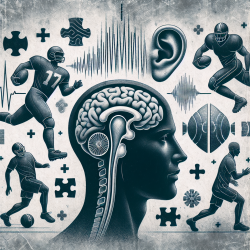Understanding Mental Deficiency in Young Children: Insights for Practitioners
As practitioners in the field of speech-language pathology, it is crucial to ground our practice in data-driven decisions. One of the foundational studies in understanding mental deficiency in young children is Charles M'Neil's 1931 research article, "Clinical Types of Mental Deficiency in Young Children." This seminal work offers insights that remain relevant for today's practitioners seeking to enhance their skills and improve outcomes for children.
Key Insights from the Study
M'Neil's study categorizes mental deficiency in young children into various clinical types, each with distinct characteristics. Understanding these types is vital for practitioners as it aids in tailoring interventions to meet the specific needs of each child. Here are some of the key insights:
- Identification of Clinical Types: The study identifies several types of mental deficiencies, each with unique behavioral and cognitive profiles. Recognizing these types can help practitioners develop more effective, individualized therapy plans.
- Importance of Early Diagnosis: Early identification and intervention are emphasized as critical factors in improving outcomes for children with mental deficiencies. This aligns with current best practices in speech-language pathology.
- Holistic Approach: M'Neil advocates for a comprehensive approach to treatment that considers the child's overall development, including social and emotional aspects, rather than focusing solely on cognitive deficits.
Applying These Insights in Practice
Practitioners can implement the outcomes of this research by integrating the following strategies into their practice:
- Conduct Thorough Assessments: Utilize detailed assessments to identify the specific type of mental deficiency and tailor interventions accordingly.
- Collaborate with Multidisciplinary Teams: Work with other professionals, such as psychologists and educators, to create a comprehensive support plan for each child.
- Engage Families: Involve families in the therapy process to ensure consistency and support for the child outside of therapy sessions.
Encouraging Further Research
While M'Neil's study provides a solid foundation, it is essential for practitioners to stay updated with current research. Advances in neuroscience and psychology continue to shed light on the complexities of mental deficiencies. Engaging with contemporary research can enhance our understanding and improve therapeutic outcomes.
To read the original research paper, please follow this link: Clinical Types of Mental Deficiency in Young Children *Read 3rd June 1931.










